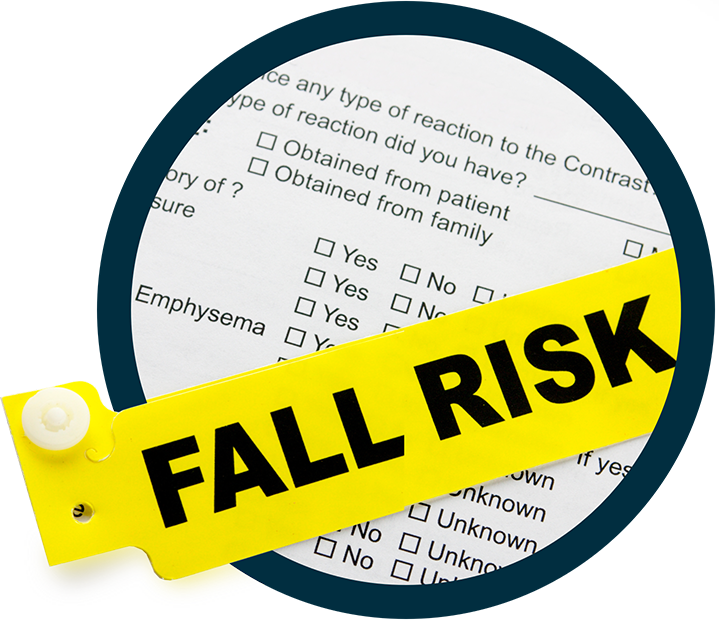“The first requirement in a hospital is that it should do the sick no harm.”
– Florence Nightingale
Kinometrix Fall Risk Assessment Solution (K-FRAS)
To address the challenge of patient falls, Kinometrix created K-FRAS, a proprietary, predictive machine learning model that uses EHR data in real-time to provide objective and accurate fall-risk predictions.
Using machine learning, the K-FRAS predicts fall risk with superior accuracy, helping hospitals to direct resource-intensive interventions where they are needed most.
1 million
1 million hospitalized patients fall each year, costing US hospitals $7 billion annually.
Current falls prevention programs are at a disadvantage due to inaccurate risk prediction that leads to preventable patient harm and increased nursing workload. Nurses complete manual fall risk prediction scores that too often produce inaccurate results and prompt generic interventions.
Fall prevention measures should be individualized, there is no “one size fits all” method to preventing falls. Unfortunately, current falls risk tools lack specificity and often overestimate patient risk in order to not miss an at-risk patient. With inaccurate tools and a high percentage of patients deemed high-risk, organizations may resort to an approach of applying minimally impactful and generic interventions to all patients.

Click to read Fall Risk Assessment White Paper
Successful fall prevention programs include a combination of environmental measures, clinical interventions, care process interventions, cultural interventions, and technological/logistical interventions. Some interventions are resource intensive and costly to an organization.
When inaccurate fall risk tools are used, these resource-intensive interventions cannot be targeted to the patients that need them most.
By using more rigorous and objective patient data, the K-FRAS provides accuracy superior to all other fall risk prediction tools. Clinicians receive automatic and precise risk prediction based on existing EHR data, including the nurses’ expert assessment, so they can individualize interventions to the patient.
With EHR integration, the K-FRAS plugs in wherever clinicians currently view a patient’s fall risk, facilitating adoption and reducing the burden of fall risk assessment documentation.
Interested in learning more about using K-FRAS? Contact us for details and pricing

